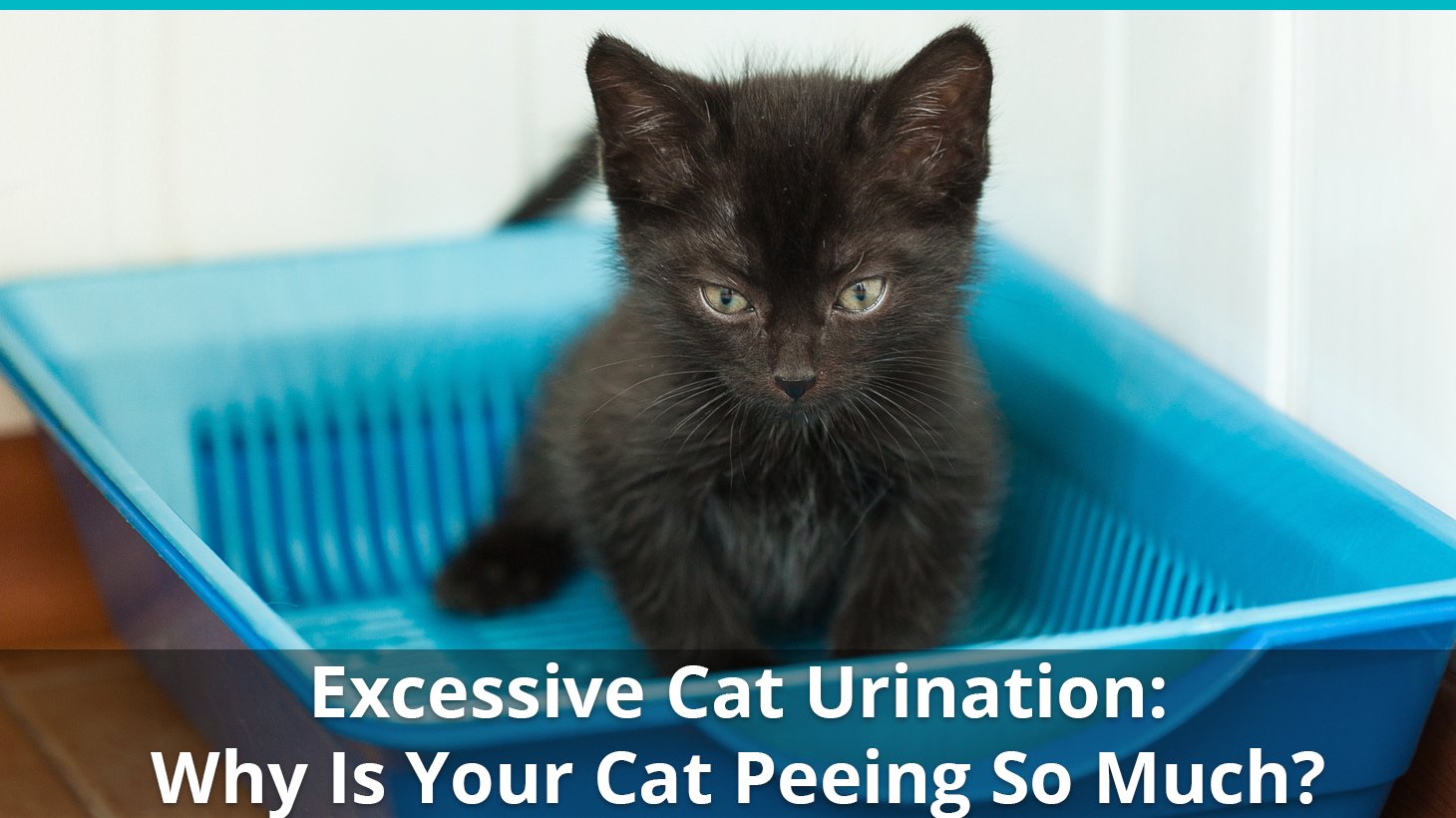Felines need to drink liquids just like any other living creature out there. Liquids leave the cat’s body in the form of saliva, tear flow, sweat-like enzymes, fluids in poop, and of course – urine.
How Much Do Cats Pee?
The average amount of urine a cat pees on daily basis is about half a cup per day.
How Often Do Cats Pee?
It always varies in each individual circumstance, but a rough estimate is two to four times every day.
If you’re caring for an indoor cat, keeping an eye on the urinating frequency and the amount of your cat’s urine is easy. You need to monitor the urine in the litter box. And if you happen to spot that your cat is peeing a lot more than it’s supposed to or urinating too frequently, it means there’s a reason for this abnormality.
Why Is Your Cat Peeing So Much?
Before we delve into why this is happening, you should know that there are two types of excessive urinating, and both indicate different things.
Some medical conditions affect the cat’s urinary system and force it to urinate more frequently than it’s supposed to. Other conditions don’t have anything to do with the frequency, but they will make the kitty release greater amounts of pee.
Increased urinating frequency is called pollakiuria, and increased urine volume is called polyuria.
Sometimes, your cat may even be peeing outside the litter box, even if you’re using the same litter type as you always have been. You’ll need to monitor your feline’s urinating habits to determine which of the two types of excessive urinating you must report to your vet for a proper diagnosis of the problem that is causing your cat to pee a lot.
Polyuria: An Increase In Cat Urine Volume
In the case of cats peeing large amounts, your furry pal is suffering from polyuria.
Polyuria occurs when your kitty is urinating larger quantities of urine than it’s usually supposed to. The cause of excessive fluids is that your furball is incapable of regulating urine formation and is releasing excessive amounts of body fluids and water along with the urine.
Kidney disease is one of the most common medical conditions which could be causing polyuria. It affects the body’s ability to retrain the fluids, so urine forms faster than usual.
In other cases, your cat could be suffering from a hormonal-based disease, like hyperthyroidism or diabetes, and its body won’t be able to concentrate urine properly, which will make it release excessive amounts of water with the urine, causing the cat to pee a lot.
Cats suffering from polyuria usually drink more water than usual to balance out the excessive urinating.
And sometimes a sudden change of diet could also be causing too little or too much urine being released by your kitty’s body. As carnivorous creatures, cats need a lot of meat as their main nutritional source of sustenance.
Feeding your furball with high-quality cat food at all times is essential for its well-being. Serving well-balanced meals to your kitty daily is of extreme importance for its physical health and can help prevent many diseases, which can occur if you’re buying lower quality food items.
Pollakiuria: An Increase In Cat Urination Frequency
If your kitty is peeing way more often than it used to, regardless of how much urine it releases, then it’s suffering from pollakiuria.
There are many health-related problems that may be causing it.
Frequent peeing is linked to the cat’s bladder and kidneys. It could be an indicator for bladder stones, sterile or idiopathic inflammation, obstruction, or some other infection. These urinary problems could also mean that your feline pal can’t empty its bladder properly due to some blockage in its urinary system.
In some cases pollakiuria might show that instead of peeing too much, your furball simply isn’t peeing enough and is just making frequent attempts to empty the bladder.
Some of the most common causes for pollakiuria are:
- bladder and kidney stones,
- inflammation,
- malfunction of the bladder muscles,
- cancer,
- lesions,
- side effects to drugs and chemicals,
- urethral plugs obstruction,
- cysts, and
- abscess on the prostate gland.
What To Do And How To Treat Excessive Urination
First, track exactly what’s going on, and bring the kitty to the vet. Explain the symptoms, and an examination is likely to follow.
No changes will likely be made or recommended if they rule out serious illness. It’s just about managing it if there’s nothing seriously wrong, but your vet will make that call.
At the very least, you’ll know if it’s a serious issue you can address before it gets worse or if it’s just a bit of an annoyance in an otherwise healthy cat.
Keeping your feline pal happy, healthy, and thriving should be your priority. If you spot any symptoms, which could be indicating that your cat is suffering from a health-related problem, alert your vet immediately.
Monitor your cat’s physical needs and habits and head to the vet’s office as soon as possible for an emergency check-up. Your vet might need thorough examinations before diagnosing your pet, but the doctor is the only one who can properly diagnose your cat and prescribe a proper treatment for the issue at hand.

